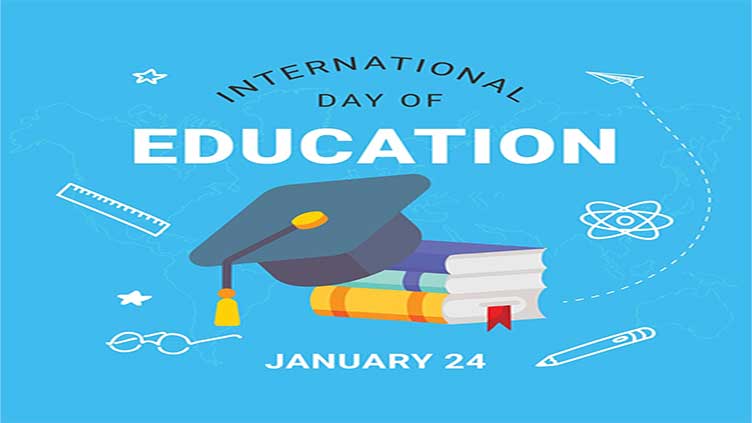The global community marked the sixth International Day for Education on Wednesday, the 24th of January 2024. The theme of this year’s Global Education Day was learning for lasting peace. The theme highlights the importance of education in fostering peace and greater understanding that strikes a deep chord with contemporary issues faced by the majority of the world’s nations including poverty, social injustice, inequality, discrimination, and intolerance which not only undermines the global peace but seriously spoil the domestic peace and environment in any country. Historically, literacy empowers and liberates people, building a better understanding of each other perspective, promoting tolerance, and enhancing peaceful coexistence among the comity of nations around the globe. Education improves lives by expanding capabilities which in turn reduces poverty, increases market participation, and has a positive impact on healthcare, social uplift, and national development, and reinforces democracy and the rule of the law. At the same time, education and literacy empower marginalized communities and promote equality and inclusiveness in society.
In today’s modern world, when nations across the globe are galloping at a fast pace to reach their destiny, Pakistan faces an alarming situation in the education sector, wherein the literacy rate stands at 58% and nearly 28 million children are currently out of school, which forms almost 40 per cent under 18 children in the country. Pakistan’s education sector faces serious issues such as a lack of funds, policy lethargy, shortage of education facilities/ schools, social disparities, class-based education systems, low literacy rates, pedagogical conservatism, commercialization of the education sector, unskilled teaching staff, multiple mediums and diverse curriculum being taught in various schools systems and religious seminaries in the country.
Education is the most important element in the overall national life of any nation. A modern and competitive education system is of utmost importance to provide state-of-the-art education to school and university students so they can compete with the current day challenges effectively. The private education industry has been groomed over the past years while the numbers of public schools and students in government education institutions shrunk sharply because the public schools use old-age curricula and teaching practices emphasizing memorization of the lesson instead of concept-based study, formative assessment, and practical implementation of knowledge gained by the students.
UNESCO has set the literacy target at 4.6 in SDG4 and Education 2030 Framework for Action to advance literacy rate in member countries. Although, equitable and quality education has been identified as an important SDG4 goal for the country under Pakistan Vision 2030. Whilst, successive governments failed to prioritize and subsequently fund the education sector in the past years leading to educational degradation and deplorable literacy rate, least among the nations in the region. Statistically, Pakistan spent below 2% of its GDP in the education sector both at the national and provincial levels while none of the education policies, including those adopted in 1970, 1998, 2009, and 2017 could achieve their objectives so far.
Historically, the UN and the global community sensitize the world nations about their weaknesses and provide funds, advice, and technical assistance to member countries to coup up those challenges, however, the states themselves have to sort out their problems per their needs, preferences, and interests of the public. It is the responsibility of Pakistani leaders to uphold their commitment, prioritize public needs, and invest in human capital if they intend to improve the quality of life in the country. It is the call of the day, as early as work would be better for the country and its people.







